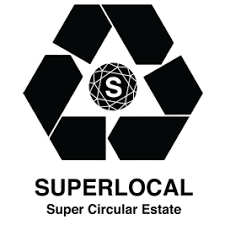Super Circular Estate Project Journal nr 2
Super Circular Estate project aims to contribute to a sustainable, low carbon, resource efficient economy by testing circular deconstruction and construction building techniques. Construction industry is one of the key stakeholders in the transition towards carbon neutral industrial processes since it is responsible for 40% of CO2 emissions in the EU. This is primarily related to the destructive demolition of buildings which results in waste streams (40% of waste in EU is Building related) and energy used to demolition of buildings, extract new materials and produce new building elements/products.
The Super Circular Estate (SCE) project is addressing this challenge and takes a proactive approach. SCE team is undergoing deconstruction of the existing 10 story housing block and using 75% -100% of its material to construct three, and later potentially, sixteen houses in the same neighborhood. This UIA project in Kerkrade demonstrates potentials of circular buildings by creating a material bank from existing housing block built in the 1960’s, studying their potential future applications and reusing its materials through new construction. SCE consortium is meeting different challenges on this road of explorations.
Many challenges with respect to the differences between circular and conventional building process have been addressed by consortium members in zoom-in movie from January 2019:
Key challenges mentioned by the design and engineering team are changing roles of participating partners through the development process, shifting responsibilities, shifting user’s perception and acceptance of reused materials, changing costs and financial models, development of new building methods, registration of materials and their potential future value. Although the project is facing big challenges it has already illustrated the potential of new circular approach to the transformation of existing buildings.
As such SCE has already drawn attention of the Dutch Government and its ministers, National Universities and research institutions, and has won well recognised Dutch Building Prise 2019.
This second expert’s journal elaborates on the steps that have been taken in order to meet above mentioned challenges during last six months of work on building permit documentation. Firstly, it will address the selection of materials to be reused in the new construction, secondly journal will elaborate design of new houses which is now in building preparation stage, and finally initial financial and environmental impacts of the designed solutions will be discussed.

